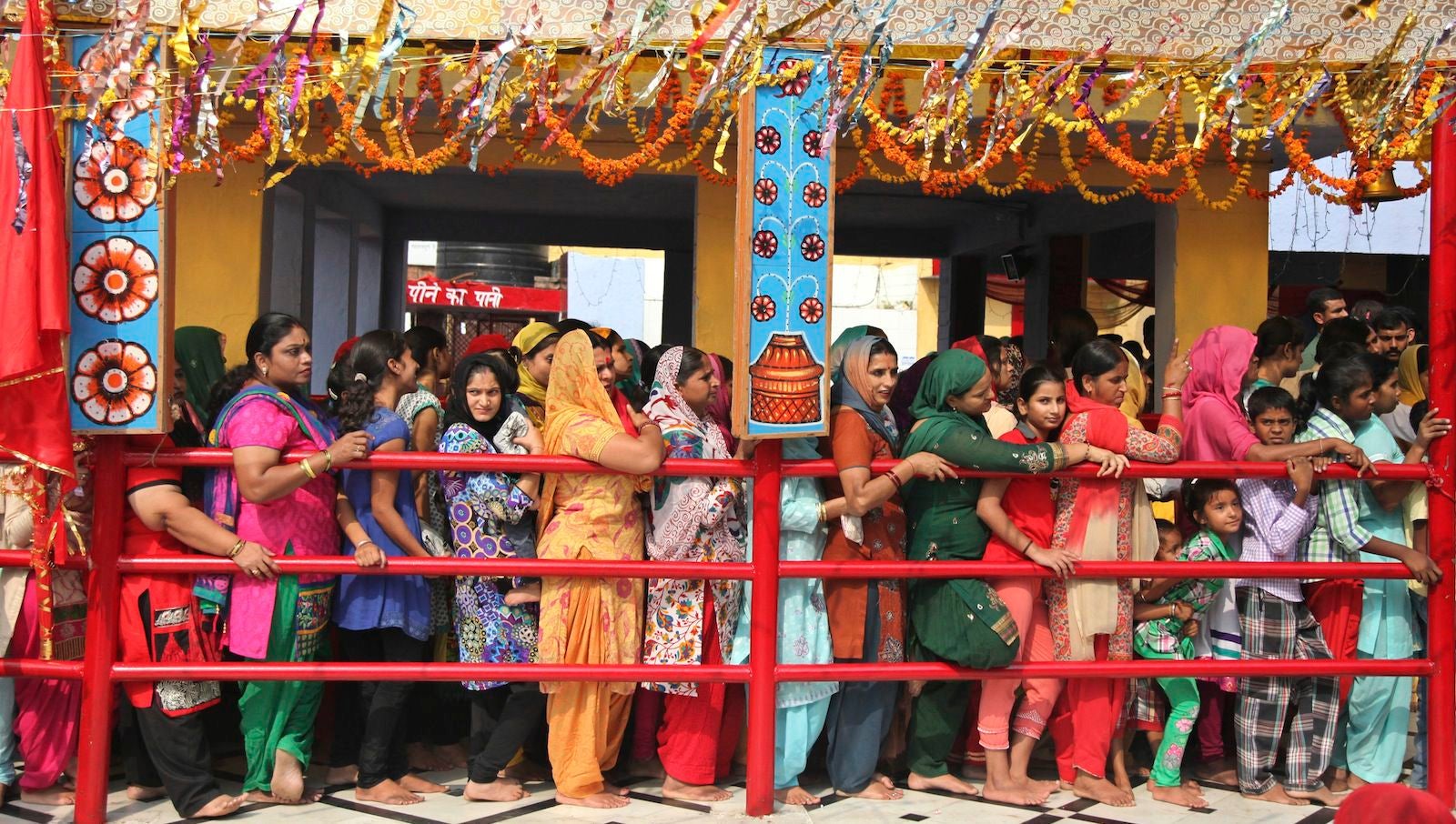Blessings from your favourite God, now home delivered. Refund if unsatisfied
To reach the shrine of Vaishno Devi (a Hindu goddess), devotees have to trek up a mountain in Jammu for nearly 12 km. It is one of the most popular pilgrimages among Hindus, attracting nearly 10 million visitors every year. Once pilgrims reach the temple, they have to wait for anywhere between six to 24 hours to complete their prayers.


To reach the shrine of Vaishno Devi (a Hindu goddess), devotees have to trek up a mountain in Jammu for nearly 12 km. It is one of the most popular pilgrimages among Hindus, attracting nearly 10 million visitors every year. Once pilgrims reach the temple, they have to wait for anywhere between six to 24 hours to complete their prayers.
This is not exceptional. At most popular Hindu temples, visitors have to endure excruciatingly long waits for darshans (the opportunity to see the deity) that might then last less than 30 seconds. For example, at the Tirupati Balaji temple, one of the most sacred spots for Hindus in southern India, visitors often wait for 21 hours for darshans that last between 0.80 milliseconds to 1.5 seconds.
A Bangalore-based startup wants to make life a bit easier for believers, especially those who don’t have the time or physical strength to visit holy spots, by delivering prasad from temples across the country to their doorstep. Prasad is the sacred food given to devotees by the priests at the end of prayers.
“We are simplifying spirituality by using technology,” Goonjan Mall, the 26-year-old CEO of Online Prasad, told Quartz. Users can choose from any of the 50 temples listed on the website and select the quantity of offerings they wish to make. The fee starts from Rs501 (approx $10) for a one time delivery of prasad. Users can also buy gemstones, religious posters or prayer beads on the website.
The company has employees at the listed temples who stand in the queue on behalf of the customer, make offering to the deities with all the required rituals and then ship the prasad to the the client’s home within four days (10 days in case of an international address). Online Prasad says it has a “liberal” refund policy.
The two-year-old company raised its third round of funding last week. The funding was led by Hyderabad Angels. Chennai Angels was a partner. Mall refused to disclose the investment amount or the growth figures. But he said that nearly half of his traffic comes from second or third tier towns in India and the average age of his customer is 40 years.
“We get a lot of housewives, businesspersons and sometimes young professionals who want to gift prasad to their parents,” said Mall, who is an engineering graduate from BITS Pilani. Mall says he is a religious and visits the Karni Mata temple, a temple in Rajasthan where rats are worshiped. The apathy and corruption among the managers there gave him the business idea, he said.
Mall plans to use the money he raised to tap into the international market. South Asia and Latin America, research firm Garner estimates, will be hotbeds by religion-based IT innovation. By 2017, the religion-driven online software and services could be as big as $40 billion.
“This is not a replacement to the temple going experience,” Mall said. “But this is the next best option for those who cannot go to the temple.”